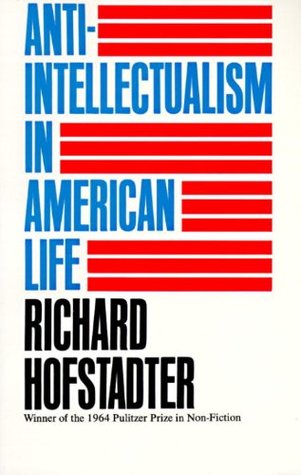More on this book
Community
Kindle Notes & Highlights
Those who have suddenly become aware of it often assume that anti-intellectualism is a new force in this or that area of life, and that, being a product of recent conditions, it may be expected to grow to overwhelming proportions. (American intellectuals have a lamentably thin sense of history; and modern man has lived so long under the shadow of some kind of apocalypse or other that intellectuals have come to look upon even the lesser eddies of social change as though they were tidal waves.)
An examination of this background suggests that regard for intellectuals in the United States has not moved steadily downward and has not gone into a sudden, recent decline, but is subject to cyclical fluctuations; it suggests, too, that the resentment from which the intellectual has suffered in our time is a manifestation not of a decline in his position but of his increasing prominence.
The plain sense of the common man, especially if tested by success in some demanding line of practical work, is an altogether adequate substitute for, if not actually much superior to, formal knowledge and expertise acquired in the schools. Not surprisingly, institutions in which intellectuals tend to be influential, like universities and colleges, are rotten to the core. In any case, the discipline of the heart, and the old-fashioned principles of religion and morality, are more reliable guides to life than an education which aims to produce minds responsive to new trends in thought and art.
...more
Although there have been zealots whom we may still regard as intellectuals, zealotry is a defect of the breed and not of the essence. When one’s concern for ideas, no matter how dedicated and sincere, reduces them to the service of some central limited preconception or some wholly external end, intellect gets swallowed by fanaticism. If there is anything more dangerous to the life of the mind than having no independent commitment to ideas, it is having an excess of commitment to some special and constricting idea.
too certain of, if he is healthily playful, he begins to find unsatisfactory. The meaning of his intellectual life lies not in the possession of truth but in the quest for new uncertainties. Harold Rosenberg summed up this side of the life of the mind supremely well when he said that the intellectual is one who turns answers into questions.


